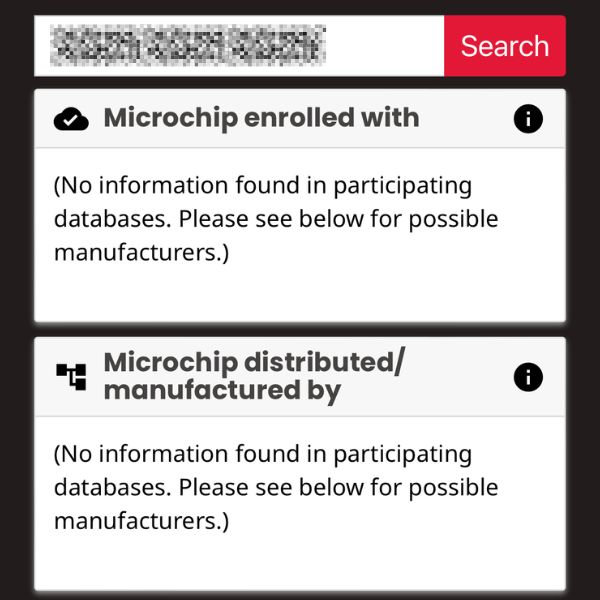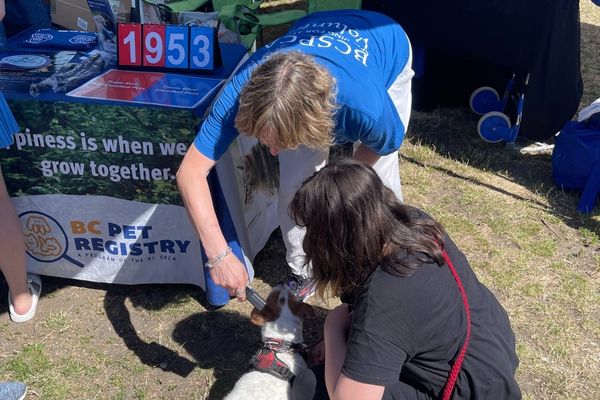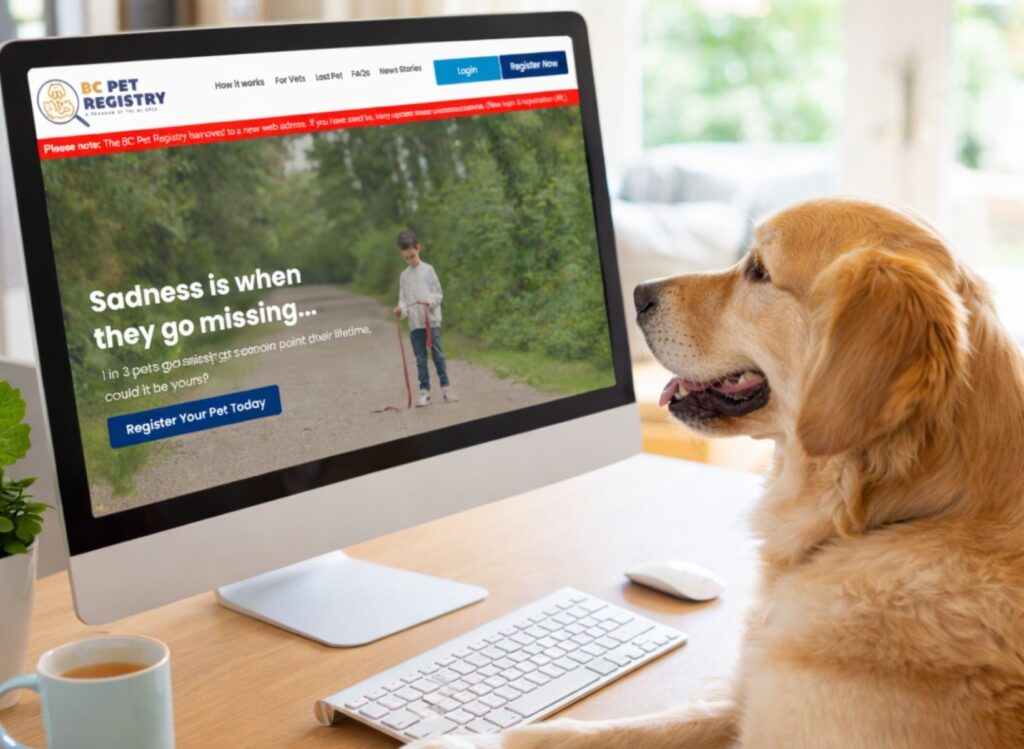Some for-profit pet registries encourage clinics not to register microchips, leaving the responsibility to pet owners and putting animals at risk until guardians pay for costly “premium” upgrades. This dangerous practice prioritizes profit over pet safety. Learn why saying no to upsells protects your pet and how the BC Pet Registry offers a fair, one-time fee with no hidden costs.
How For-Profit Pet Registries Put Pets at Risk
Most pet owners assume their microchip is automatically registered when the vet implants it. Unfortunately, that isn’t always the case. While registration is a shared responsibility between the clinic and the guardian, some for-profit pet registries have been found actively encouraging clinics NOT to register microchips.
Why? Because they can profit when owners do it themselves. Instead of full protection, pets end up with a bare-bone record that cannot be updated with essential information unless guardians buy an upgrade.

This business model prioritizes profit over pet safety — and it leaves countless animals at risk.
The Upsell Business Model
For-profit pet registries profit by creating roadblocks. Clinics are encouraged to leave microchips unregistered, increasing the likelihood that guardians will be upsold when they attempt to complete the registration. Owners then discover they must pay extra to add essential details such as:
- Alternate contacts
- Updated phone numbers or addresses
- Co-owner information
- Medical notes or images
Some registries charge up to $199 just for these updates/upgrades. Pet guardians shouldn’t have to buy back access to something they already paid for.
The Real-World Consequences of Unregistered Microchips
This is not just an unfair sales tactic — it has serious consequences. A pet with an unregistered chip is far harder to return home. Without accurate contact information, finders and shelters have no direct way to reach the pet’s guardian, leading to unnecessary delays or, in some cases, preventing reunions altogether. Many pet owners are not aware of this until their animal has gone missing and by then the animal is probably suffering in a stressful environment like a shelter waiting forever to be reunited with their family.
At BC Pet Registry events, we see the fallout every year. Nearly 20% of pets we scan have unregistered microchips. That’s 1 in 5 animals who might never make it back home because their information was never registered in the first place. Check out our community work and findings here.

Georgia’s Story: The Cat Lost in the System

Georgia, a handsome cat from Vancouver, BC, is a striking example of what can go wrong when microchips go unregistered. His chip was issued by an Ontario-based microchip company but was never linked to an owner’s contact information. Although the microchip was eventually traced to a veterinary clinic in downtown Vancouver, the clinic—having been advised not to register the chip—had no record of Georgia’s family. With no registered contact, his guardians could not be reached directly.
Read more about Georgia's story here. His experience underscores the serious risks posed by unregistered microchips and the devastating consequences these practices can have for pets and their families.
Say “No Thanks” to Upsells
Pet guardians should never be pressured to pay more for their pet’s safety. Say no thanks to for-profit pet registries that encourage clinics not to register microchips. These upsell tactics put animals at risk just to increase corporate revenue.
Why BC Pet Registry Is Different
The BC Pet Registry puts animals first. With a one-time $45 fee, you get:
✅ Lifetime registration
✅ Unlimited updates for contact details
✅ Ability to add co-owners or emergency contacts
✅ Upload medical records
✅ Photos
✅ Ownership transfers at no extra cost
There are no upgrades, no hidden fees, and no sales traps. Every dollar supports the life-saving work of the BC SPCA.
Protect Your Pet from For-Profit Practices

Don’t let for-profit pet registries profit from your pet’s safety. If your pet’s chip is unregistered and you’re being pressured to pay more, register directly with the BC Pet Registry instead. You’ll protect your pet — and support animals in need across BC.
Don’t have a microchip yet? Ask your vet about the BC Pet Registry! Clinics using BC Pet Registry chips have already done the homework and chosen what’s best for your pet, they already include the lifetime registration with unlimited updates, no upselling required. Here are some Questions to Ask Your Vet Before Microchipping Your Pet in BC..
FAQs
1. Why do for-profit pet registries encourage clinics not to register chips?
Some for-profit registries ask clinics not to register chips so they can profit when owners do it themselves. During registration, owners are often prompted to buy “premium” upgrades for basic features like alternate contacts, medical info, or photos. It’s a sales tactic—many pet owners and clinics don’t realize these essentials should already be included.
2. What makes BC Pet Registry different?
BC Pet Registry offers lifetime protection for a one-time $45 fee. All updates are free, with no upsells or hidden fees.
3. How do I know if my pet’s microchip is registered?
Ask your vet or visit a BC SPCA branch to scan your pet’s chip. Confirm that your contact information is correctly linked. You can also email the BC Pet Registry team at info@bcpetregistry.ca for guidance.
4. What happens if my pet has an unregistered chip?
An unregistered microchip delays or prevents reunions. Finders can’t reach you directly, leaving your pet at risk of staying lost.
5. Why choose BC Pet Registry over others?
Unlike profit-driven registries, BC Pet Registry supports animal welfare with every registration. Learn more here. You can also check out our community work through this link.

